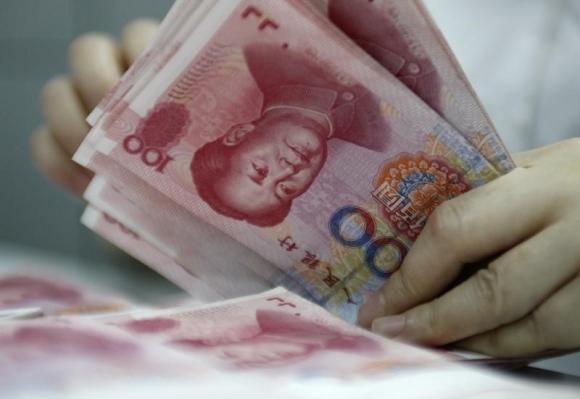 |
|
An employee counts yuan banknotes at a bank in Huaibei, Anhui province June 22, 2010.[Photo/Agencies] |
LONDON/WASHINGTON - A compromise deal on reforms to give emerging markets greater influence at the International Monetary Fund is increasingly likely, a key official said on Friday, weeks before a deadline for US action expires.
Plans agreed in 2010 to give emerging markets more IMF voting power and double the Fund's resources have been delayed by the fact the US Congress has not approved the change.
If Congress does not pass reforms by Sept 15, the IMF board has said it will discuss an "interim solution" by month's end. Options include increasing the quota for key emerging economies without requiring any change in the US position.
Rakesh Mohan, the IMF's executive director for Bangladesh, Bhutan, India and Sri Lanka, told Reuters: "There's more and more likelihood that something like that will happen."
"We could do some ad-hoc changes like we did in 2008. You could increase the shares of some countries that are most under-represented, China, India, etc."
The comments suggest that opposition among emerging markets to any halfway measures may be abating.
"This is a signal to the administration and to Congress that the world is ready to proceed without them," Peterson Institute for International Economics senior fellow Jacob Funk Kirkegaard said.
But Brazil's representative on the executive board, Otaviano Canuto, said his country had not yet abandoned hope of a full-fledged reform, although he said the discussion would "probably" head towards an ad hoc change as an interim step.
"We have not given up yet," he said in an interview in his office in Washington, noting that the final deadline for Congress to act was the end of 2015.
"Pushing for any alternative ... would be tantamount to throwing in the towel with respect to the 2010 reform."
So-called ad hoc changes would probably result in the US quota share falling from its current 17.7 percent, although remaining above the 15 percent threshold that gives the country a veto on key IMF decisions.
But it would fall short of the change in governance and funding originally envisaged. Any ad hoc reform would also require the support of the United States.
Each member country of the IMF is assigned a quota based on its relative position in the world economy. This determines its maximum financial commitment to the IMF and its voting power.
Brazil's previous IMF executive director, along with Russia, had pushed a second proposal, known as "de-linking," in which the IMF board would detach the doubling of resources from changes to the board structure, and the United States would be asked to temporarily give up its veto power until it ratified the reforms.
But Canuto said he did not know if that option was still feasible, as there had been no board debate on the options yet. No date was set for the discussion.
Mohan said that hardball tactics had sometimes been the only way the IMF had made progress with quota issues in the past. The current five-year delay in the latest reforms was unprecedented, however.